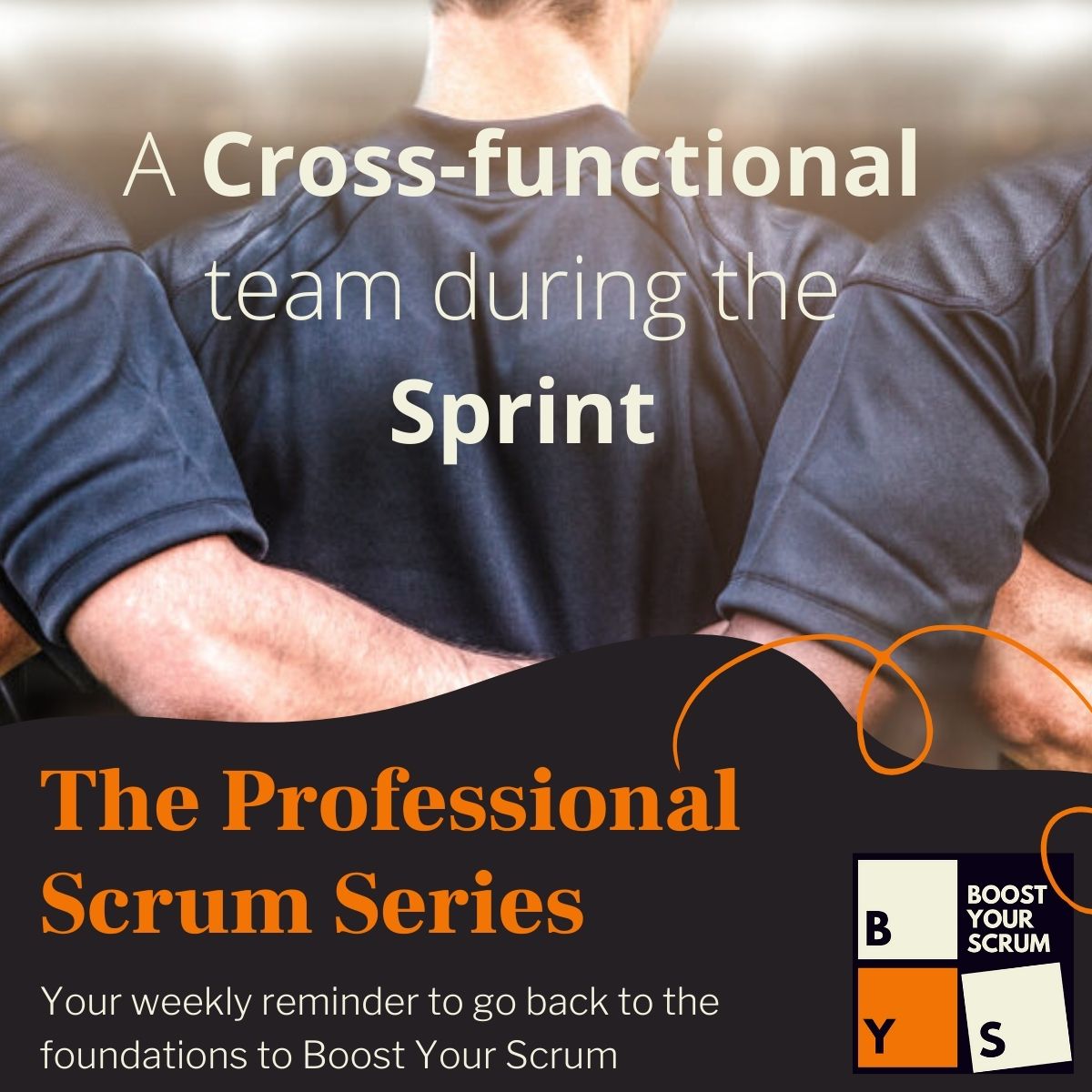We started this Scrum foundation series explaining we see four underlying concepts of the Scrum framework. In the past series of mails we covered the three pillars of Empiricism, the Scrum Values, and Self-Management.
A self-managing team is taking decisions about who does what, when, and how. This ensures the team can move forward without unnecessary waiting time. If we want to improve on that, and to support the team taking ownership, having the needed skills within the team is another step.
👉 Cross-functional, meaning the team internally has all skills needed to successfully complete their goals.
Growing cross-functionality = growing skills = raising mastery = higher motivation = higher effectivity.
During each of the Scrum Events, and throughout the Sprint itself, the Scrum Team should have all necessary skills in order to reach its objectives.
Let’s have a look at the Sprint itself.
Reminder: the objective of a Sprint is to turn ideas into value, to do all the work necessary to achieve the Sprint and Product Goal.
Next to skills for being an awesome team player such as listening, speaking up, giving and receiving feedback, etc. what is expected more specifically during the Sprint?
A lot happens during a Sprint. The Scrum Team needs all skills inside the team to develop the next Done Increments, a new status of the product that is ready to give into the hands of the users.
So your team needs technical/building skills, business skills, product specific skills, analytical skills, problem solving skills, communication skills, collaboration skills, stakeholder management skills, training skills, facilitation skills, documenting skills, conflict handling skills, and many many more.
These are just a few examples of skills that are put in action during a Sprint.
Each time a team has to ask others outside the team for doing something, this involves a delay, it involves transferring information, it involves receiving back the result of that work and the need to check if it is indeed as expected. Quite some time is lost. And nobody in the team has grown these needed skills. Next time this skill is needed, the same will happen.
And as Scrum is employing an iterative approach, it is very likely it will happen Sprint after Sprint.
Each time a team has to ask others outside the team for doing something, consider it an opportunity to grow the skills within the team. What is the exact skill we are looking for? Is there anyone within the team interested in learning this skill? How will we, as a team, approach this skillset in the future?
☝️ It is not a matter of who in the team has the skills, as long as together the team has the skills needed.
Summary:
Cross-functional is about having all skills within the team to create value each Sprint.
In order to accomplish the purpose of a Sprint, the Scrum Team needs specific skills that that turn ideas into value, to deliver an improved product.
Prompt:
Together with your Scrum Team, evaluate which skill improvements the team would benefit from to make your Sprints more effective.
I hope you find value in these short posts and if you are looking for more clarifications, feel free to take contact.
If you want to take a deeper dive into the core concepts we are covering in this blog series, then surely check out our Professional Scrum Master workshop. We have some scheduled in the coming period.
Don't want to miss any of these blog posts? Have the Professional Scrum foundations series weekly in your mailbox.

